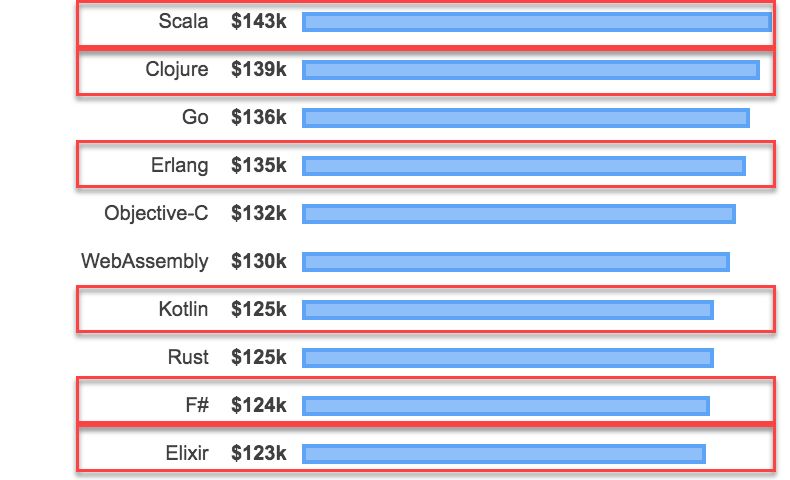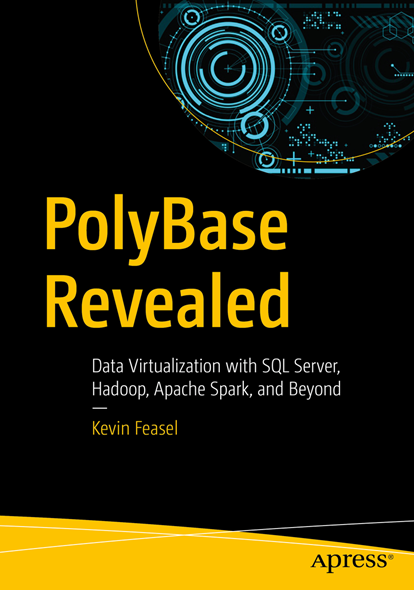A Map to Success
Functional Programming for Database Developers
Kevin Feasel (@feaselkl)https://csmore.info/on/fp
Who Am I? What Am I Doing Here?
Agenda
- What is Functional Programming?
- Why Go Functional?
- Demos Galore
What is Functional Programming?
- Functions and Data, Data and Functions
- Immutability
- Expressions
- Functions are higher-order
Functions and Data
Functional programming is all about data and the functions we use to transform that data.
Data retains the shape of data rather than objects (data + accessors + mutators) and functions remain separate from data.
Immutability
Never change the data itself. Create a new structure with new data.
Benefits:
- Concurrency -- critical for Big Data solutions
- Separates data and functionality
- Idempotence makes reasoning and testing easier
Expressions
Functions take inputs, return outputs, and ideally do nothing else (that is, have no side effects).
This makes reading code much easier: you can abstract away functional complexity and think at the grain of the problem.
The opposite: an accessor ("get" property) which modifies data, or a Get procedure which updates tables.
Functions are Higher-Order
Functions are values like integers or strings. You can take a function as an input to a function and a function can return a function as an output.
Functions are an abstraction for performing operations on data. This approach leads to composition: layering functions together rather than implementing parent and child objects through inheritance.
An Analog: the APPLY Operator
An Analog: the APPLY Operator
A Quick Example
Relevant functional programming concepts:
Agenda
- What is Functional Programming?
- Why Go Functional?
- Demos Galore
Why Go Functional?
Reasons to learn about functional programming include:
- Key data science and Big Data languages are functional.
- Functional programming can earn you more money.
- Database developers will have an easier time learning it than OO languages.
Data Science and Big Data Languages
Reasons to learn about functional programming include:
Data science:
- R
- Julia (sort of)
Big Data:
- Scala
Key concepts:
- MapReduce
Money

The Functional Mindset
Database developers have a leg up on thinking functionally:
- We think in terms of sets and set operations.
- We think in terms of data and operations on data.
- We think in terms of declarative operations instead of imperative step-by-step operations.
- Functional programming makes it easier to avoid the object-relational impedence mismatch problem.
What if I'm a C# / Java Dev?
Functional programming still helps people who work in C# and Java all day.
We have seen more and more functional programming concepts make their way into these languages, especially C#. LINQ, lambda expressions, async and Task<>, Func<>, non-nullable object types, record types, and more have made their way into C# (at least as of C# 8).
Agenda
- What is Functional Programming?
- Why Go Functional?
- Demos Galore
Demos Galore
We will now look at an F# console application filled with basic examples of what you can do with the language.
This isn't always the best code and it's not a perfect guide for learning the language, but it gives you a feel for behavior and a few of the language benefits.
Wrapping Up
Functional programming has its own mindset which can take time getting used to, especially if your background is as an object-oriented developer. There are significant benefits to building up your FP skills, especially if you are interested in the Data Engineering space, where languages like Scala dominate.
Wrapping Up
To learn more, go here:
https://csmore.info/on/fp
And for help, contact me:
feasel@catallaxyservices.com | @feaselkl
Catallaxy Services consulting:
https://CSmore.info/on/contact



